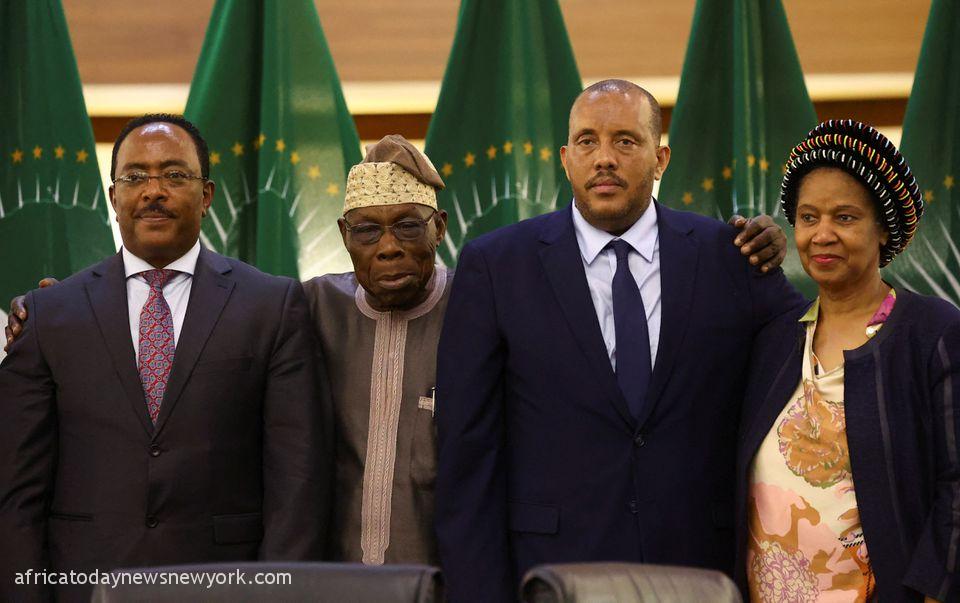Reports reaching the desk of Africa Today News, New York has it that the warring parties had arrived in South Africa on Monday and commenced the peace talks which were finally finalised on Wednesday evening with the observers from the United Nations (UN), the United States (US), and the Intergovernmental Authority on Development (IGAD).
Among prominent Africa Today News, New York leaders that facilitated the cease-fire pact were former Kenyan President Uhuru Kenyatta and former deputy president of South Africa Phumzile Mlambo-Ngcuka.
Recall that both the government and Tigray dissidents formally agreed to a permanent termination of hostilities which has lasted two years to displace millions.
Read Also: Zuma Slams South African Judges After Leaving Jail
‘The two parties in the Ethiopian conflict have formally agreed to the cessation of hostilities as well as the systematic, orderly, smooth, and coordinated disarmament,’ Obasanjo said.
Ethiopian Prime Minister Abiy Ahmed, after the truce was reached, said, ‘As we’re completing the war in the north with victory, we have to bring peace, development and ensure Ethiopia’s prosperity, so we make those forces that cause conflict among Ethiopians from afar feel shame.’
A few weeks ago, a former President of Nigeria, Dr. Goodluck Jonathan had called for an immediate cessation of hostilities in Ethiopia, following continued fighting between Ethiopian soldiers and soldiers of the Tigray Defence Forces in the northern part of the country.
The former President urged the warring parties to embrace dialogue and negotiations in the interest of the peace of their country and the entire continent.
Dr. Jonathan who is ECOWAS Special Envoy in Mali and Chairman of the international Summit Council for Peace (Africa) made this known in a statement titled ‘Ethiopians should meet as brothers, not as combatants.’
The former President said: “I call for an immediate cessation of hostilities in the conflict between the Ethiopian government and those opposed to it.”
Jonathan noted that Ethiopia, as a nation, “is strategically important to Africa, being at the heart of the continent, and of our efforts at continental unification”, adding that such a country should not be allowed to be consumed by the internal crisis.
